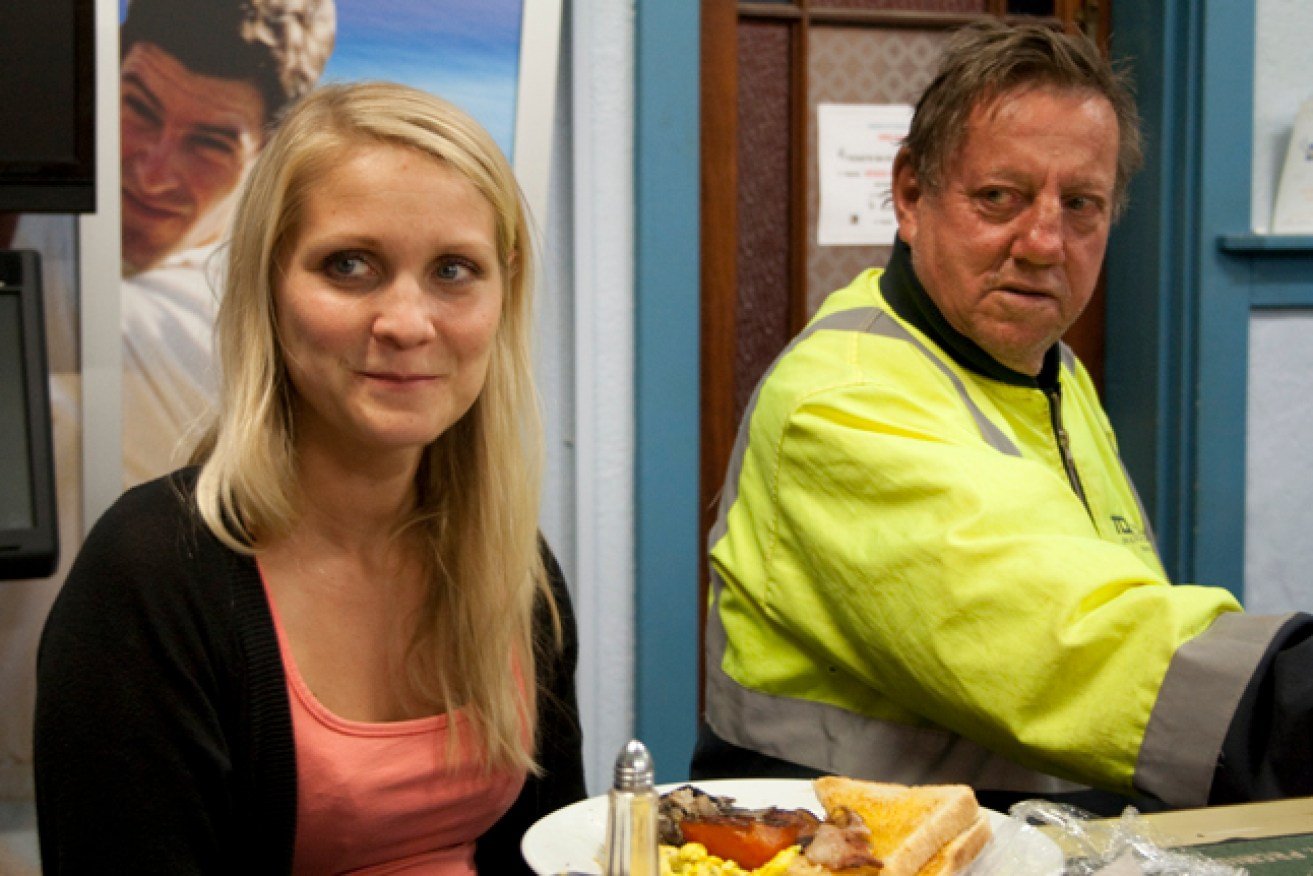A plot straight out of a horror film: two young, but penniless foreigners find themselves stuck in a town ruled by miners and their drinking habits. This is the real story of Lina and Steph (surnames withheld), twenty-something women who have just been robbed out of their credit cards and cash in Bali. Their around-the-world trip takes them to Australia, by way of an agency that offers seasonal work, room, and board. The cost is small: you have to be "okay with a little male attention" in this particular place. A mining town called Coolgardie becomes synonymous with hell for the two women as seen through Pete Gleeson's camera that's inobtrustive, distant, "a-fly-on-the-wall". Precisely that distance makes exacerbates the ick factor when watching the documentary today, even if its content is not judgemental. Because of how easily the camera blends in to the surroundings, we're left to wonder exactly how deep racism and sexism run in that particular microcosmos. After all, according to the manager, customers “grow a new leg” when “fresh meat” comes to town.
Synopsis
Fresh off the plane and in need of money, two Finnish backpackers find themselves the latest batch of “fresh meat” sent to work as barmaids at the only pub in a remote Australian mining town.
Storyline
Two Finnish backpackers arrive to work at a bar in a remote mining town in the Australian outback, agreeing to be filmed throughout the weeks they stay to save up money for their world trip.
TLDR
No doubt, one of the scariest documentaries you'll ever see.
What stands out
Sticking to the observational style of documentary filmmaking, Gleeson lets the camera follow the natural evolution of events, how they fold and unfold. He often opts for longer sequences without cutting to see how much the tension can escalate before it reaches boiling point. Sometimes, that approach can feel straining on the viewer, because in certain scenes you can't help but want someone to interfere. Empathizing with Lina and Steph is non-negotiable, as they are always in a more vulnerable position, and an object of male rage and/or desire. However, even if Gleeson planned the film to be "just an observation" of the power dynamics in a place where a lot of foreign personnel come and go, the documentary's removed style captures the subtle aggressions that make women's' lives a living hell in all countries in the world.




